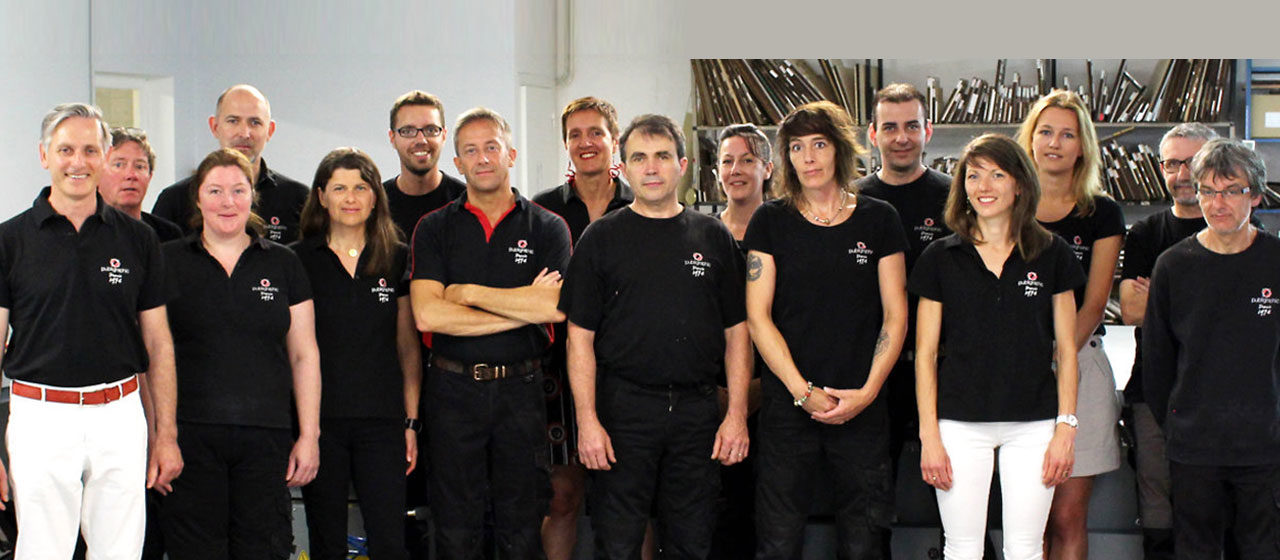Publigraphic

The sustainable philosophy of the French company recognized in the local edition of the SME EnterPRIZE project, in the Welfare category
For Frédéric Guémas, owner and head of Publigraphic, wellbeing at work is inexorably linked to self-efficacy, an individual’s belief in their ability to succeed no matter the circumstances, and to the sentiment of ‘being versus having’. It’s a way of thinking that he has promoted ‘little by little’, he says, since he bought the printing press company in 2001.
Welfare at work in the Brittany-based firm is not about having the prettiest staffroom or access to a great company gym – it stems from an ingrained company philosophy of sustainable development, naturally integrated into their everyday working life.
In particular, the company head seeks to develop the potential of each employee to contribute in participative management, putting the onus to show commitment and autonomy on each one of them by adopting the credo of ‘whomever knows, does and who does, learns’. The force of the company lies in individual accountability: for example, there are no team leaders and employees write their job descriptions themselves. Frédéric Guémas’s role as CEO is to listen to and solve problems, create project teams and make sure the same rules apply to everyone. Each employee’s potential is positively reinforced, and Guemas makes sure that employees’ personal objectives are integrated into the company’s overall goals.
He believes that having a versatile workforce is a major key to success, citing the staff’s rotating responsibility system as “the ideal way to promote awareness and understanding of all aspects of the job.” Each employee has a chance to fill in turn both the role of internal client and internal supplier, in a role reversal that fosters a natural respect for each other’s work. Everything is always discussed and never imposed top-down, whether it’s buying new equipment or adjusting a job for a better fit in the organization. This not only makes sense for the business, but it also works as a permanent self-validating tool for employees.
Particular attention is paid to health and safety with a focus on the ergonomics of workstations. Among the factors measured, there are noise and daylight levels and work-life balance, with flexibility and trust as the guiding principles to respond to employees’ life and family needs outside of work.
Support for the local environment and the planet is an integral part of Publigraphic’s philosophy, for example through the recycling of everything that can possibly be recycled and the choice of Frédéric Guémas and some of the staff to come to work by bike.
Publigraphic came up with sustainable ideas also during the pandemic period. Following government directives, it started off by producing paper masks. While at it, the company also set up a partnership with a recycling firm that picks them up to find new uses for them, avoiding waste. Aside from the usual procedures, such as the distribution of alcohol gel, to ensure social distancing the company came up with a creative countermeasure, equipping each staff member with a mobile phone to use for workplace conversations in order to avoid going to each other’s desks. Moreover it set up a health desk to check on employees’ daily health conditions.
Solidarity is a shared team value: a case in point is making sure that at busy times everyone checks with colleagues whether their planned holidays fit in with other people’s workloads.
The result of Puligraphic’s ‘Being vs. Having’ policy is tangible. Not only is there barely any absenteeism in the 50/50 male/female workforce, but the average length of service there is 15 years. The printing firm also attracts 25 interns per year, eager to train in a company known for its people care and investment on welfare. “How we feel at work makes us want to work better, too” sums up one employee, underlining the mutual respect that lies at the heart of the company.
That respect, along with the awareness of their carbon footprint and a belief in their individual accountability, works to make Publigraphic a strong and sustainable contributor to the local economy.